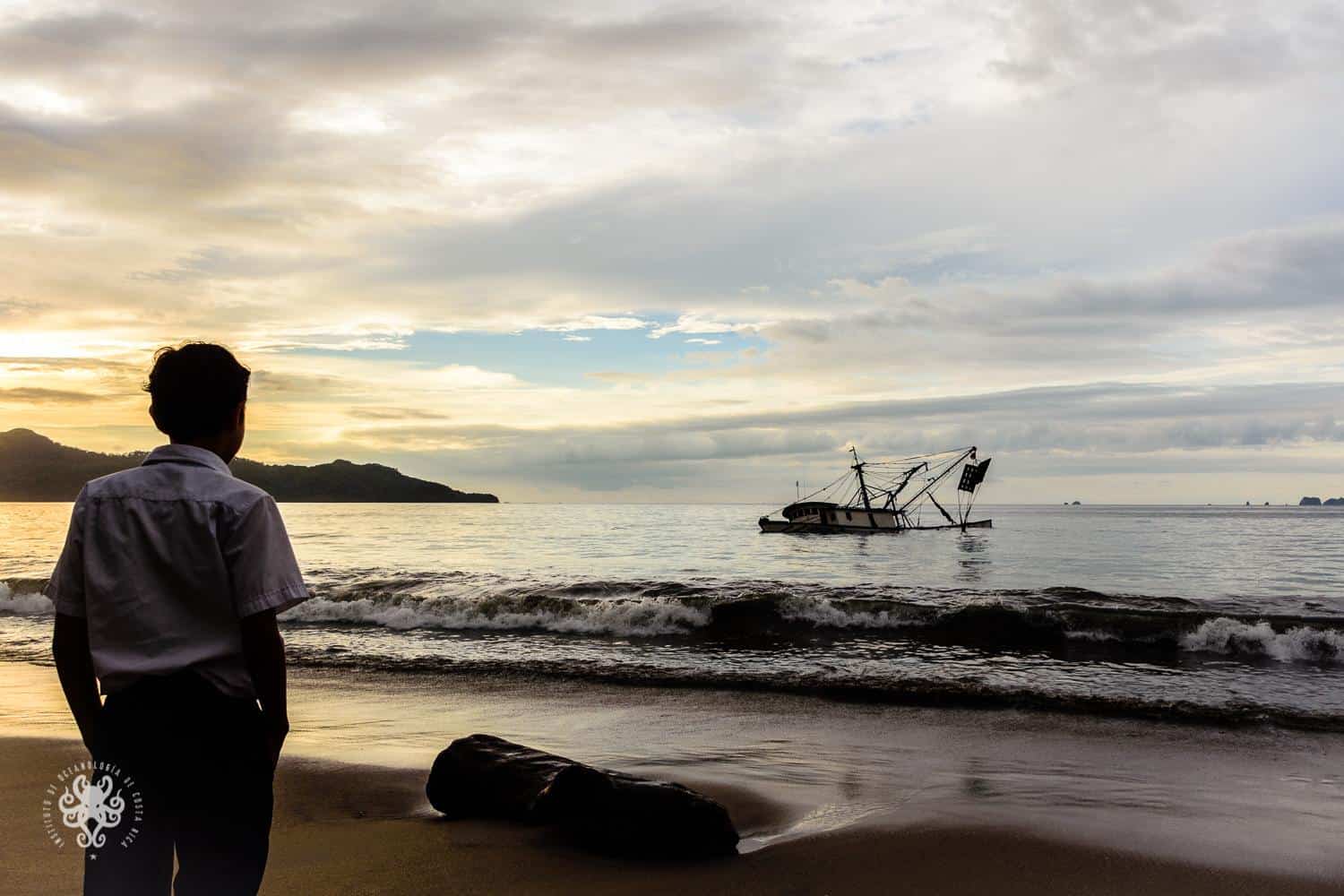A Costa Rican shrimping boat sank earlier this week off the coast of Playa Brasilito on the country’s northern Pacific coast, spilling large amounts of diesel fuel into the ocean. In the aftermath, community members have come out in force to help mitigate the damage.
According to the Costa Rican Oceanology Institute, the spill happened Sunday night at approximately 8 pm, when it is believed that the boat hit a large cluster of rocks that ripped a large hole in the hull of the vessel. Institute president Marie Beal told The Tico Times that about 80 members of the local community have helped with cleanup efforts on the beach, and that they group finished removing scrap metals and debris from the beach on Wednesday morning.
Beal said that while it is unknown exactly how much diesel fuel leaked into the ocean, the boat’s tank had a capacity of 18,000 gallons of diesel, which is made from crude oil. Nelson Soto, the head of the Navigation and Security Division of the Ministry of Public Works and Transport (MOPT), indicated in a statement on Wednesday afternoon that the maximum amount of fuel the boat could have carried while fishing was 5,000 gallons.
“We’re extremely worried about the environmental damage that this is going to leave behind,” Beal said during a phone interview. “The good news is that the whole community rallied to help clean up everything that came to shore.”
Beal, who lives in nearby Playa Potrero, said that five to six crew members were aboard when the boat sank. Members of the Costa Rican Coast Guard were then immediately sent to bring them to land.
The boat, named Azoriano and registered in Puntarenas, was safely situated onshore Wednesday morning as oil remains in the water, Beal said. The statement from MOPT indicated that the boat will be removed from the water on Thursday.
A Coast Guard member from Playa Flamingo who was a part of the rescue crew, and who asked not to be named because he is not an official spokesman, told The Tico Times that the boat sank “very rapidly” after hitting the rocks and that it was impossible to save the ship because so much water was rushing in. He said he could not comment on whether the captain of the boat made an error, but did say that the accident occurred in a very dangerous part of the ocean because it is rocky.
Nelson Marín, a regional director for the National System of Conservation Areas (SINAC), told The Tico Times that it is not yet possible to gauge the severity of the damage.
“Since yesterday we have been working with other institutions to clean up and do an evaluation of how much has spilled and the long-term effects on the fauna,” he said.
Marín added that this is the first large fuel spill in Guanacaste that he could remember.






